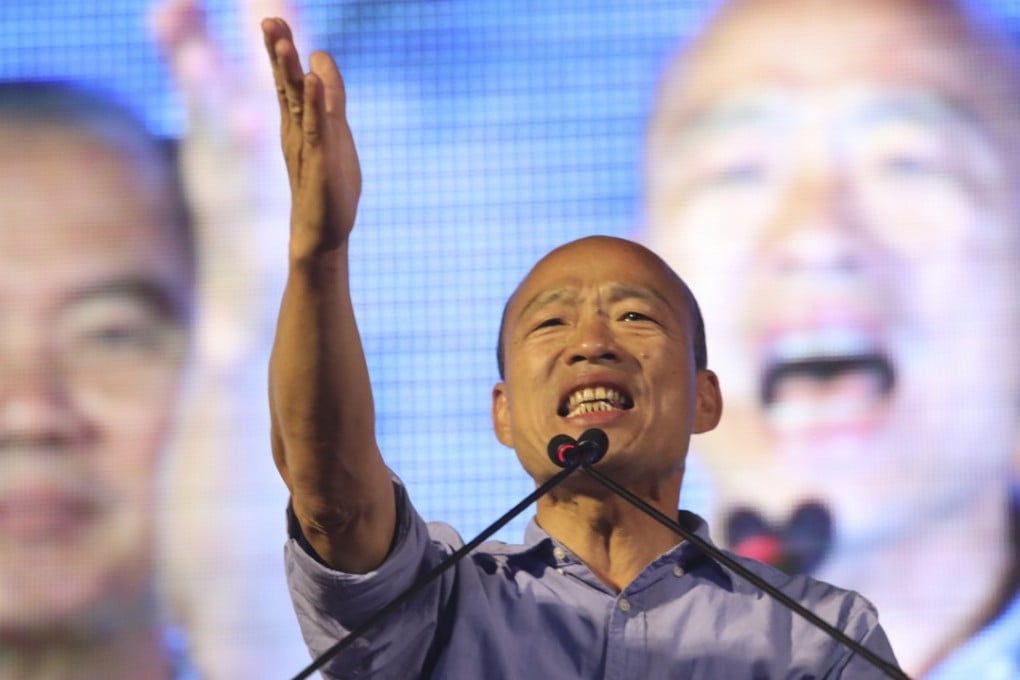After Taiwan polls, Kaohsiung’s new mayor will lead charge on mainland-friendly policy
- Beijing has discouraged trade and tourism with the city because it’s long been a pro-independence stronghold – but Han Kuo-yu wants that to change
- Other KMT-controlled cities and counties in Taiwan are expected to follow suit

Kaohsiung’s new mayor Han Kuo-yu will spearhead a mainland-friendly policy that is expected to be followed by 14 other opposition Kuomintang-controlled cities and counties in Taiwan.
Beijing has already welcomed the move but it is expected to upset the government of the self-ruled island after its crushing defeat in the midterm polls on Saturday.
Han, the 61-year-old who led the KMT to a landslide victory in the local elections, said he would set up a cross-strait ad hoc committee to improve relations with the mainland when he takes office on December 25.
“The mainland market is very important,” he told reporters in Taipei on Wednesday. “It accounts for 40 per cent of Taiwan’s total exports, and because of certain reasons, our products cannot be sold there and their people [tourists] are not coming.”
Han was referring to the deteriorating ties between Taipei and Beijing since Tsai Ing-wen, of the independence-leaning Democratic Progressive Party, became president in 2016. Tsai has refused to accept the “1992 consensus” – an understanding that the two sides of the Taiwan Strait belong to one China.
Beijing sees Taiwan as a breakaway province awaiting reunification, by force if necessary, and has insisted that official communications will not resume until Tsai accepts this one-China principle.
Campaigning on a promise to make Kaohsiung rich and great again, Han won over voters in the southern city – a traditional stronghold of the pro-independence camp – and other KMT candidates in the local elections were able to build on his popularity.
Tsai resigned as chairwoman of the DPP after her party lost control of seven counties and cities, including Kaohsiung and another special municipality – the central city of Taichung. The KMT, meanwhile, more than doubled its political control of the island to 15 cities and counties, including three special municipalities.